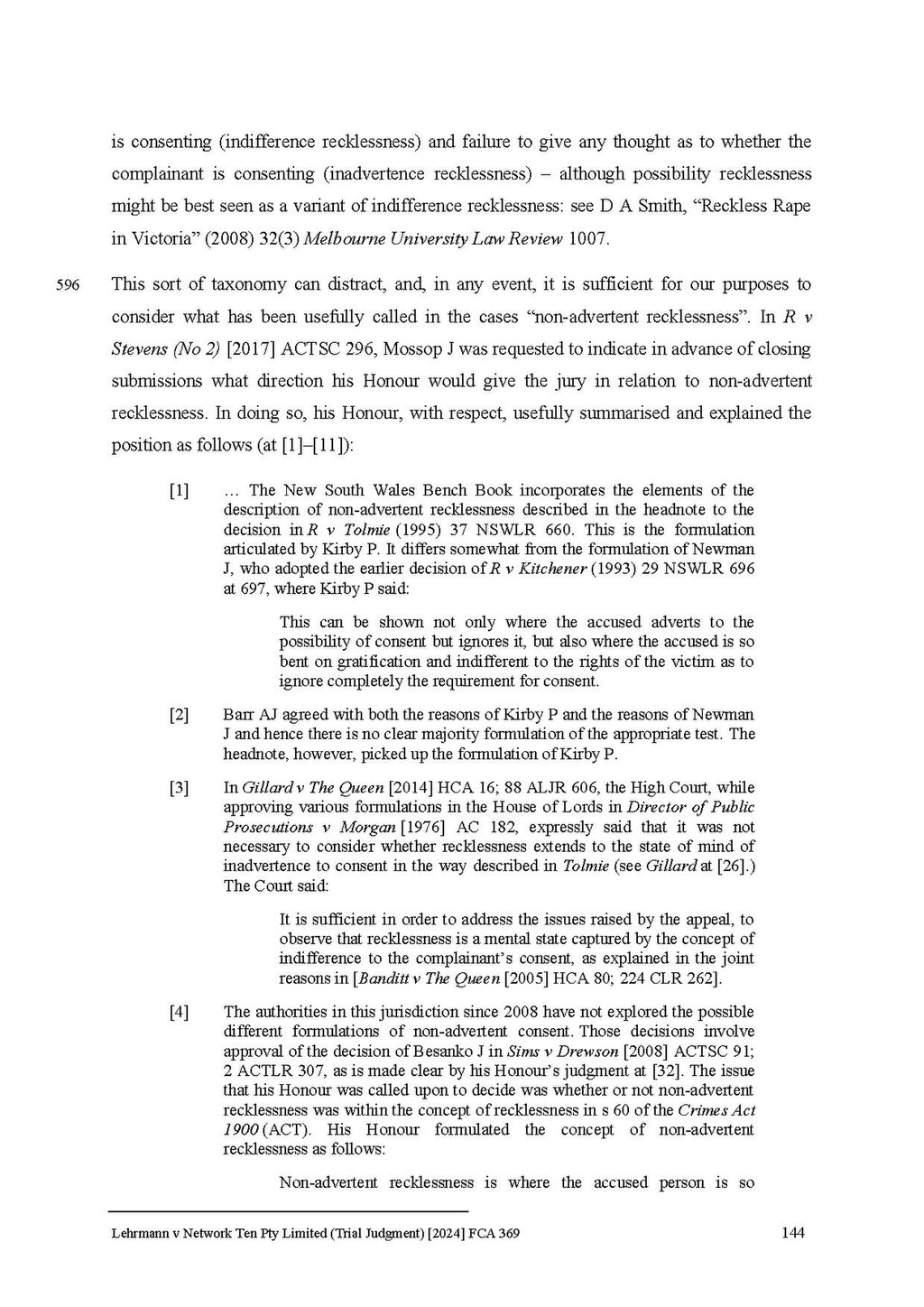is consenting (inadvertence recklessness) – although possibility recklessness might be best seen as a variant of indifference recklessness: see D A Smith, "Reckless Rape in Victoria" (2008) 32(3) Melbourne University Law Review 1007.
596 This sort of taxonomy can distract, and, in any event, it is sufficient for our purposes to consider what has been usefully called in the cases "non-advertent recklessness". In R v Stevens (No 2) [2017] ACTSC 296, Mossop J was requested to indicate in advance of closing submissions what direction his Honour would give the jury in relation to non-advertent recklessness. In doing so, his Honour, with respect, usefully summarised and explained the position as follows (at [1]–[11]):
[1] … The New South Wales Bench Book incorporates the elements of the description of non-advertent recklessness described in the headnote to the decision in R v Tolmie (1995) 37 NSWLR 660. This is the formulation articulated by Kirby P. It differs somewhat from the formulation of Newman J, who adopted the earlier decision of R v Kitchener (1993) 29 NSWLR 696 at 697, where Kirby P said:
This can be shown not only where the accused adverts to the possibility of consent but ignores it, but also where the accused is so bent on gratification and indifferent to the rights of the victim as to ignore completely the requirement for consent.
[2] Barr AJ agreed with both the reasons of Kirby P and the reasons of Newman J and hence there is no clear majority formulation of the appropriate test. The headnote, however, picked up the formulation of Kirby P.
[3] In Gillard v The Queen [2014] HCA 16; 88 ALJR 606, the High Court, while approving various formulations in the House of Lords in Director of Public Prosecutions v Morgan [1976] AC 182, expressly said that it was not necessary to consider whether recklessness extends to the state of mind of inadvertence to consent in the way described in Tolmie (see Gillard at [26].) The Court said:
It is sufficient in order to address the issues raised by the appeal, to observe that recklessness is a mental state captured by the concept of indifference to the complainant's consent, as explained in the joint reasons in [Banditt v The Queen [2005] HCA 80; 224 CLR 262].
[4] The authorities in this jurisdiction since 2008 have not explored the possible different formulations of non-advertent consent. Those decisions involve approval of the decision of Besanko J in Sims v Drewson [2008] ACTSC 91; 2 ACTLR 307, as is made clear by his Honour's judgment at [32]. The issue that his Honour was called upon to decide was whether or not non-advertent recklessness was within the concept of recklessness in s 60 of the Crimes Act 1900 (ACT). His Honour formulated the concept of non-advertent recklessness as follows:
Non-advertent recklessness is where the accused person is so
